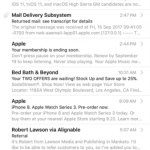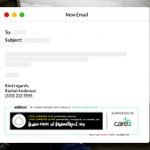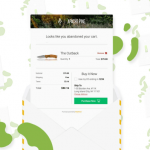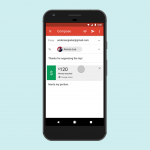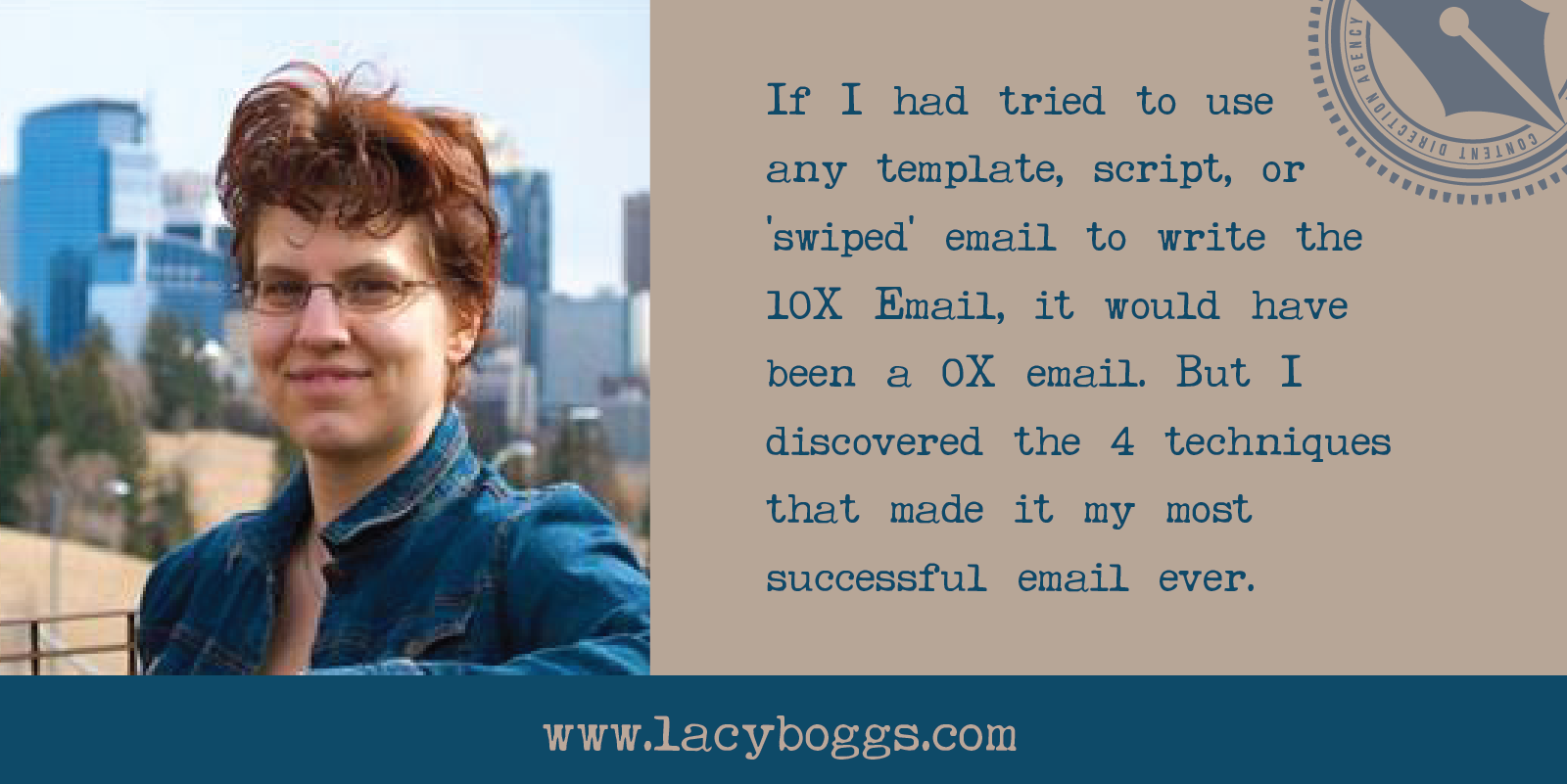The 10x Email
April 20, 2016
For years, I believed that trying to sell through my email list was a losing proposition.
I had a good reason, mind you: my best clients all came from referrals and introductions. Whenever I’d invite them to join my list, they always declined, explaining, “I don’t sign up for email lists.”
What’s more, the people I had managed to get on my list didn’t seem to be the right kind. They didn’t ask many questions, didn’t engage, and most of all — didn’t buy.
This went on for far too long. I let myself believe that my ideal clients just didn’t join email lists at all … until one day, I got fed up.
I decided I was tired of using “my email list doesn’t have the right people on it” as an excuse. I needed to use email to sell.
Now, I’m not new to sales and copywriting. My sales pages themselves were always quite successful. My low-end products converted quite well. But for high-end consulting and services, it just wasn’t working.
So I went back to basics: for three months, I studied copywriting and sales techniques, email marketing and psychology, storytelling and persuasion.
Then, I wrote — and sent — a single email. The result? My most successful email ever. In fact, its success is why I call it the “10X Email”.
More on that later, but for now, here’s how I did it …
First, a Warning
When I sent the 10X Email, I got a lot of responses from people saying it was the best email they’d ever read. They read every word, and it was going straight into their swipe file.
While I appreciate the sentiment, I hope you don’t do that.
See, there’s only one reason that I’m sharing this story with you: the 10X Email worked.
Rather, it worked for my business.
This doesn’t mean it’s going to work for your business.
Using examples, templates and scripts to write your emails never works. Past experience has taught me that if I had tried to use any template, script, or “swiped” email to write the 10X Email, it would have been a 0X email — just like all the ones before it had been.
The difference with the 10X Email was that I went deeper. In studying great copy, I went behind the words, to master the underlying techniques that make copy powerful. Techniques like these:
- Storytelling
- Contrarianism
- “Open loops” and curiosity
- Authentic scarcity
These four (plus one bonus) are the techniques that made the 10X Email my most successful email ever.
Just don’t add the email to your swipe file, or try to use it as-is. It won’t work for you.
These underlying techniques, though? They will …

10X Email Technique #1: Storytelling
Storytelling is the buzzword du jour in the content marketing world. Everyone’s talking about it.
Not just any story will do, though.
As a through-and-through geek, I know from years of reading fantasy novels, playing video games, and watching epic movies, that great stories all have one thing in common:
A strong protagonist. A hero. Someone the reader wants to see succeed.
Unfortunately, too many copywriters-turned-storytellers get this wrong. They focus their story on the wrong hero.
See, when the story is about you, it will be interesting … but when the story is about the reader, it becomes compelling.
The 10X Email is, at its core, a story about the reader. From the very first line, the message is clear: the reader is the hero of this story, not me.
As the email goes along, even as it moves into a more traditional format, the story elements continue.
The story expands with new details: 2x’ing revenue, launching a program, building a team. They aren’t “maybe-could be” statements. They’re part of the story; a vivid representation of our hero’s fait d’accompli.
Through the paragraphs that follow, the story evolves and grows. As they buy into my story and can see themselves in it, I start weaving in elements of their present reality. I show them how the story — and what I have to offer — fits with their core burning desires.
That’s the power of story.
10X Email Technique #2 – Contrarianism
The second technique is to defy expectations by being contrary.
Of course, you never want to be contrary just for the sake of it. But saying something unexpected will make people sit up and take notice.
The 10X Email was not a veiled sales message; the subject line was overt: “Want to work with me in 2016?” Everyone who opened this email knew they were getting a sales pitch.
And yet, had I jumped directly into a traditional sales letter, I would have lost potential buyers’ attention.
As sales expert Jeffrey Gitomer says,
“People don’t like to be sold, but they love to buy.”
Enter contrarianism. Instead of going straight to what the reader might have expected — a pitch — I gave them a story.
Instead of telling them “here’s the thing you should buy”, I listed all the things they can’t buy.
Instead of painting a picture of business success, I spoke to their inner belief that business success is a piece of the puzzle, not the puzzle itself.
At every turn, I asked myself, “What’s the thing that would normally come next in an email like this?” and then defied that expectation.
10X Email Technique #3: Open Loops and Curiosity
Neither of the above two techniques would have worked, though, had I not blended in some open loops.
An open loop is what TV producers do when they do a “to be continued…” episode.
They build up all kinds of tension…
… and they don’t resolve it right away.
It gets you to tune in the next week (or next season!), because we all hate unresolved tension.
That’s why email marketers have latched on to open loops as a way to get people to keep reading through a lengthy email series.
I didn’t want to create a big email campaign, though. I only wanted to send one email.
So I adapted the technique and focused on opening micro-loops throughout the email. I’d ask questions, create tension, and then not resolve it right away.
In the end, everything was resolved … but you had to keep reading before you’d feel satisfied.
The use of open loops is why I had people reply to my email, specifically saying that they “read all the way to the bottom, it was that good.”
Which was, by the way, critical to the success of the email: unless they read to the end, they would have missed the whole point.
10X Email Technique #4: Authentic Scarcity
In the past, I’ve had a really hard time creating a sense of urgency or scarcity around my work. Mostly because everything I do is, essentially, evergreen.
We’re a consulting company. We’re “always open” — outside of one group program, we don’t really do launches. Thus, saying things like “get in now while you still can!” always felt inauthentic.
My breakthrough came from a most surprising place; the problem was nothing to do with marketing theory at all.
Instead, it came from a book that changed my life: The 12 Week Year by Brian P. Moran.
One of the key exercises in The 12 Week Year is to design your model week: to literally create a calendar that reserves time first for priority projects and for necessary administration, leaving whatever is left over as available to clients.
In this equation, clients have to fit around my schedule. There are limited opportunities, and my business model has to work with those limitations. I had to know exactly how many clients I could — and would — take, while still hitting my revenue targets.
Once I’d defined my availability, creating authentic scarcity was easy. Within a month of setting out my model week, I had more people wanting to work with me than I a) needed for the month to hit targets, and b) could fit into my new schedule.
Thus, I was fully booked, which allowed me to be truthful in saying that everything I offered the past year had sold out.
It’s hard to be fully booked when you don’t put limits in place. Put limits in place, and it becomes much easier to say you are — and mean it.
The 10X Email Secret Technique
As I mentioned earlier, a lot of people responded to the 10X Email to tell me how much they loved it.
But of course, it doesn’t matter how many people emailed me and told me they read all the way to the end of the email, or that it’s the best sales email they had ever read, or other nice things.
The only thing that really tells me if the email worked is if it generated sales.
Especially of the one product that I said I had available. Everything was sold out, except Elevate– my single-session, “let me help you take your course, workshop or training product to the next level” offering.
The entire email built up to one big call-to-action: Book an Elevate Session.
So let’s cut to the chase. What were the results?
As a result of that email, I made …
*Drumroll*
One Elevate sale.
Wait, what?
How could I call this the most successful email I ever sent?
Because I didn’t really want to sell Elevate sessions — instead, I wanted to sell something far more valuable. That’s the secret technique that made the difference:
10X Email Technique #5: Know What You Really Want
Even though I didn’t get direct sales, I did get my ideal clients to start coming out of the woodwork. And that’s what I really wanted.
Let me explain.
Remember, I kicked off this article telling you that I was tired of believing that my ideal clients wouldn’t get on my list, never mind buy from it.
Part of that is due to the nature of my work: I do high-end consulting. It’s not the type of thing you buy from a spiffy sales page and a buy button.
Plus, when I designed my model week, it became very clear that I couldn’t continue to grow my business by doing one-off sessions with clients, which is what the Elevate sessions are.
Instead, I needed to focus on getting more long-term retainer clients.
That’s what I really wanted.
With that in mind, then, the entire Elevate sales pitch was actually a decoy. If you download the entire email, you may notice that the messaging around Elevate sessions was out of sync with the picture I had painted earlier in the email.
So why did I spend all that time painting a different picture?
Because it was that picture that resonated with the right people so much … that it compelled them to respond to the very last line of my email:
That’s what I really wanted, and that’s what I got.
Why It’s Called the 10X Email…
From that one email, I got a number of amazing inquiries from remarkable people who are exactly those I want to work with. On exactly the right types of projects, too.
I got my leads raising their hands, identifying themselves, setting up discovery conversations with me, asking for bespoke projects. Retainers. Long-term gigs that are worth a few thousand dollars up front, but which will be worth thousands of dollars a month to my business for years to come.
The email itself has generated approximately $ 15,000 in up-front cash so far. Since sending that email, we’ve also tripled our monthly recurring revenue.
Given the average lifetime of a customer with me on these retainers, it’s probably an underestimate to say it was a $ 150,000 email.
Conservatively, that’s a factor of 10X.
Likely more, because an email that successful needs to be re-used, so it will eventually make its way into my marketing automation machine.
But it all comes down to knowing what I was selling. Our consulting services aren’t the type of work that you can pitch directly. It’s never going to be the sort of thing that sells from a standard “click a button and buy” sales message.
Instead, it required a story – not about a particular product, but about a vision that requires action to get there.
To be contrary, and mention all the things you want to work on … but for which you can’t be booked directly.
To open loops, so that the readers are curious enough to read all the way down the page to the very end, where the call to action for them was.
And to build authentic scarcity, to get those who have you on a “someday” list to know that if they want to work with you on any of their big dreams any time soon, they need to act now.
That’s what it takes to write a 10X Email.
Digital & Social Articles on Business 2 Community
(14)





